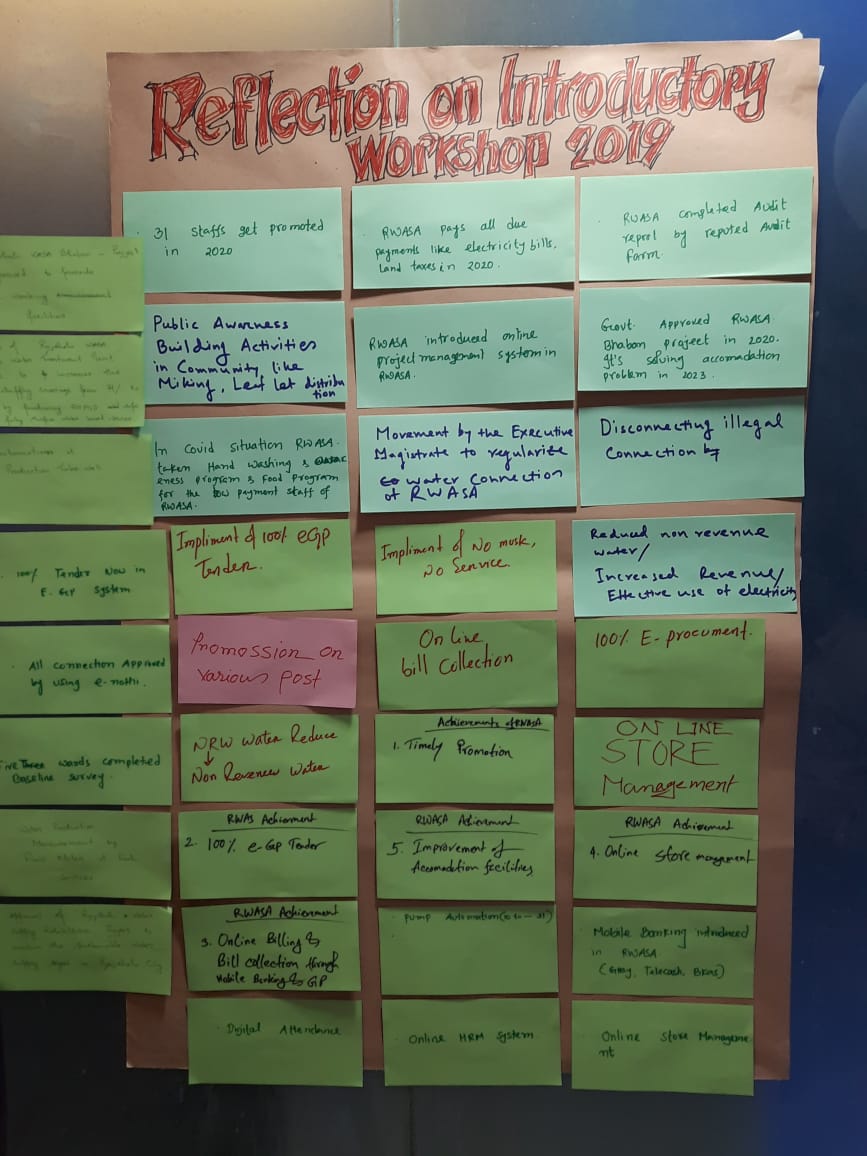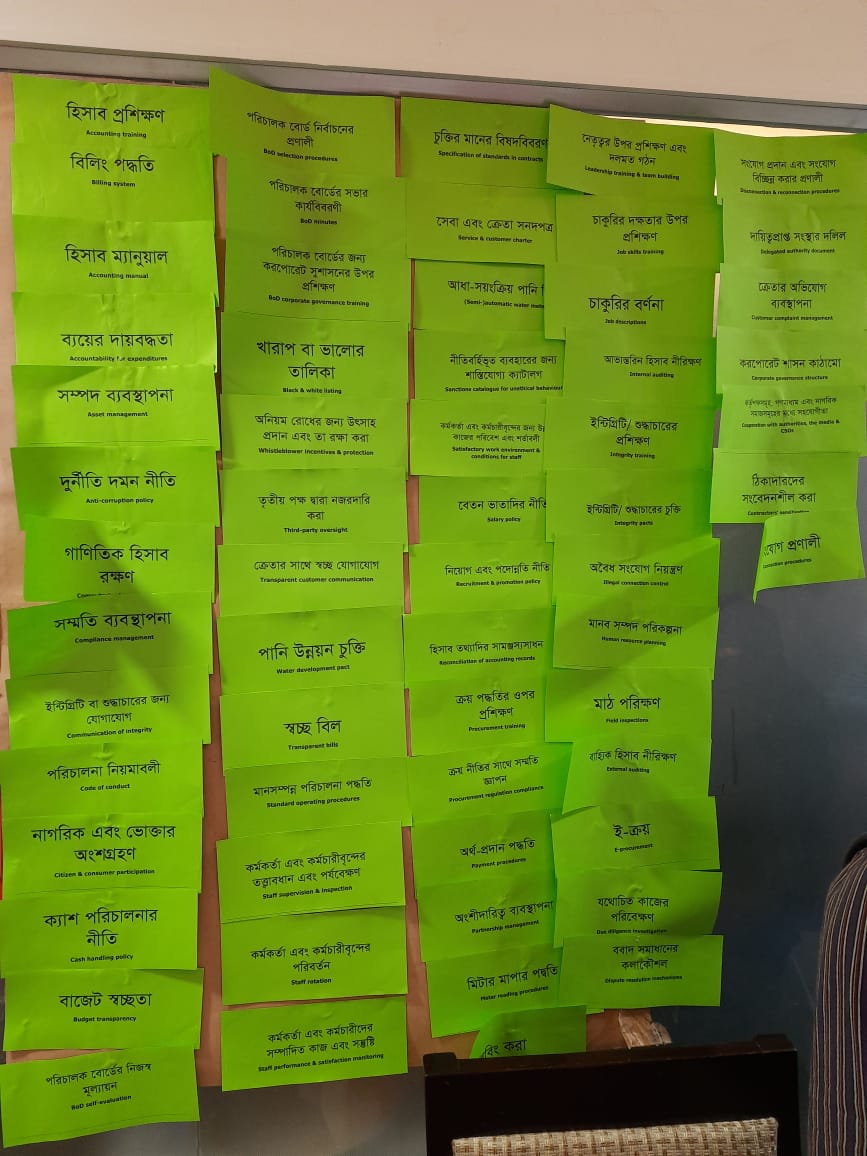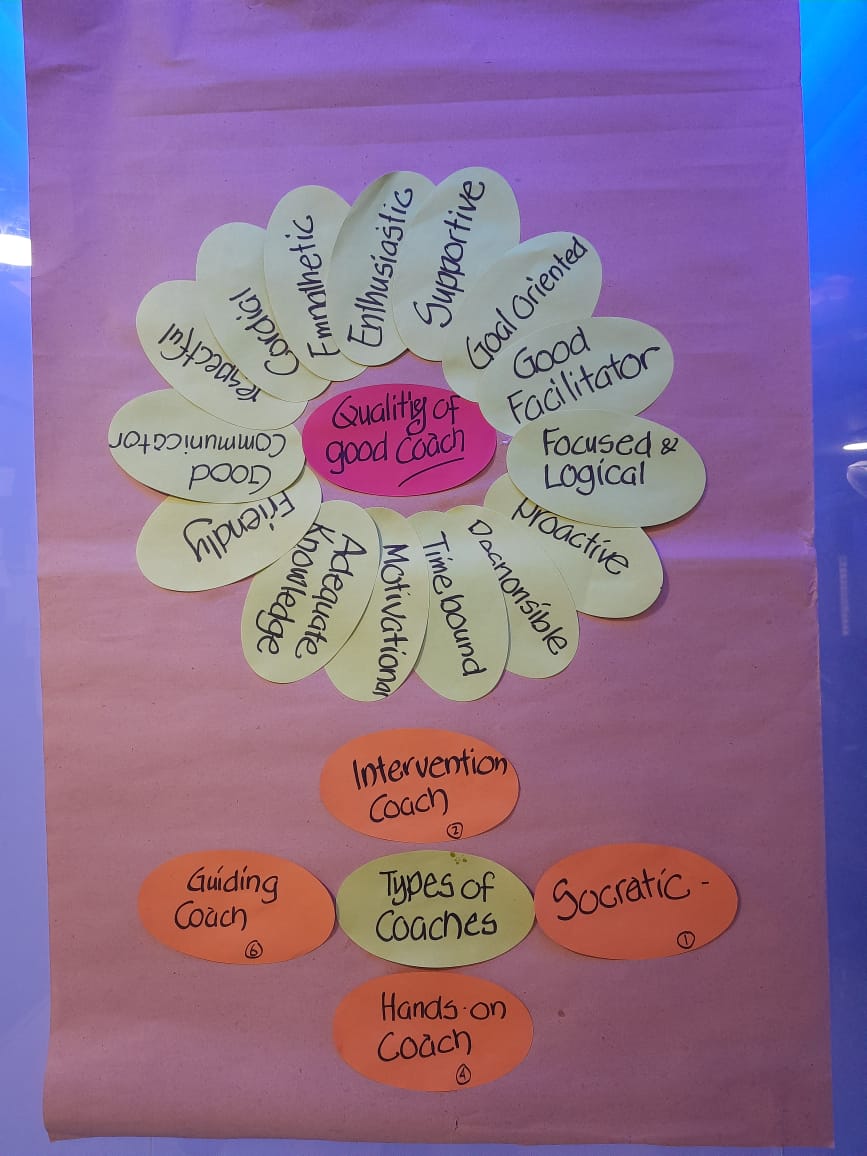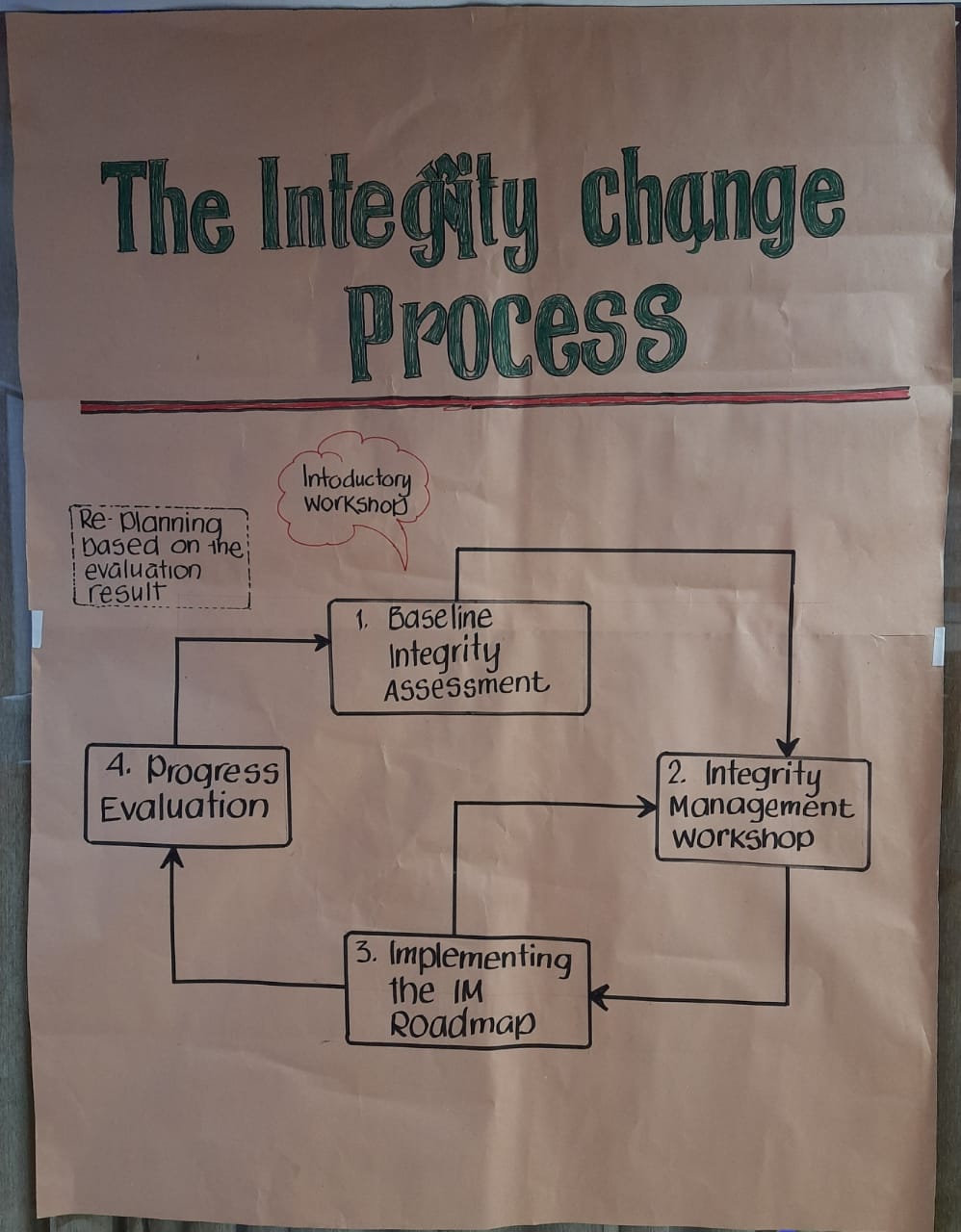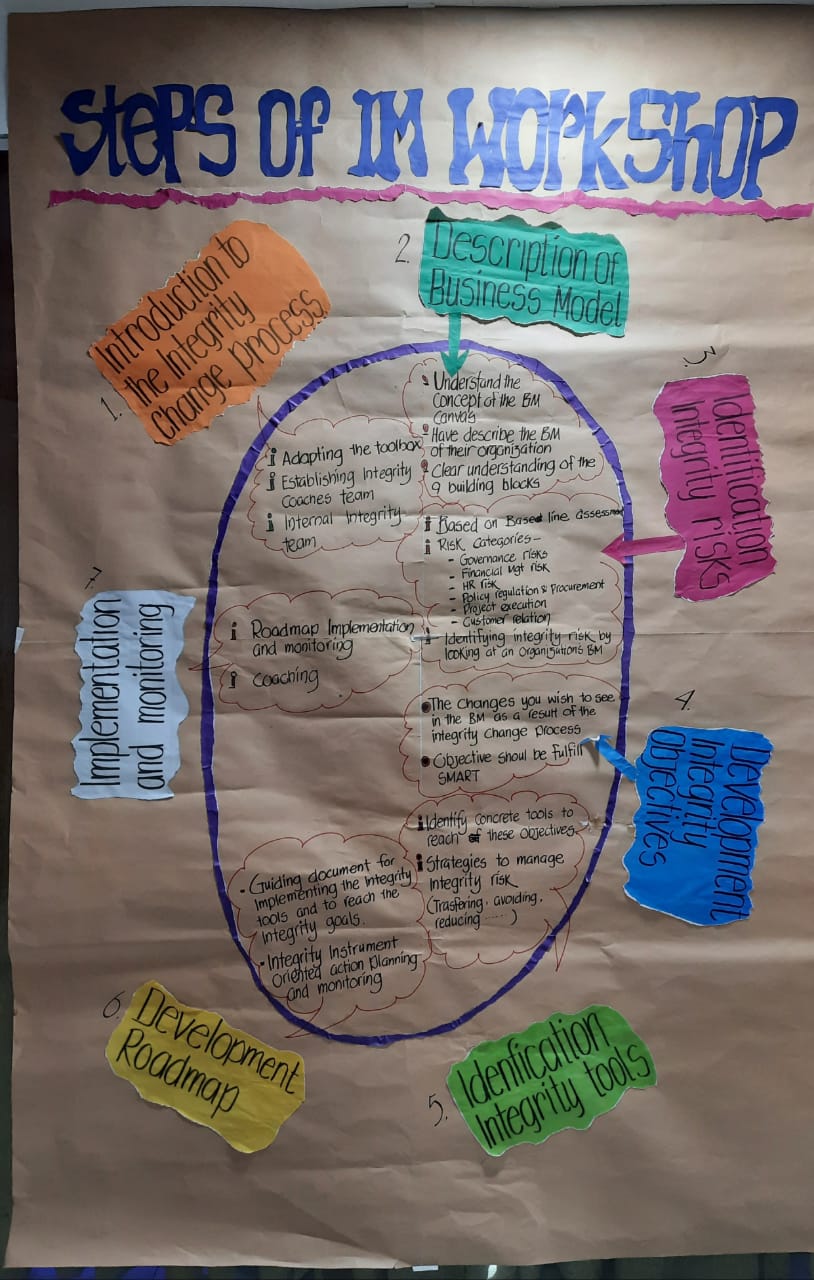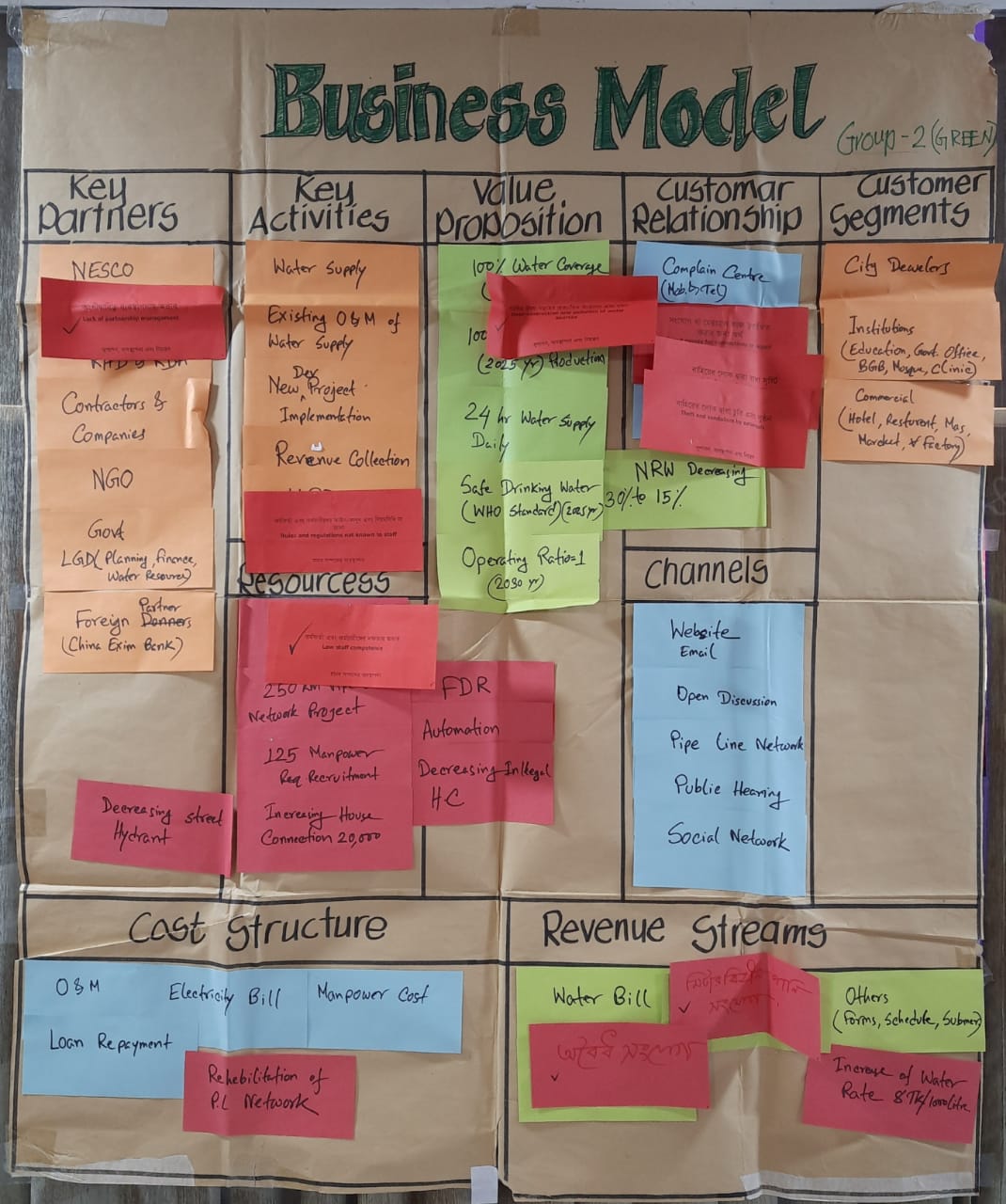Background
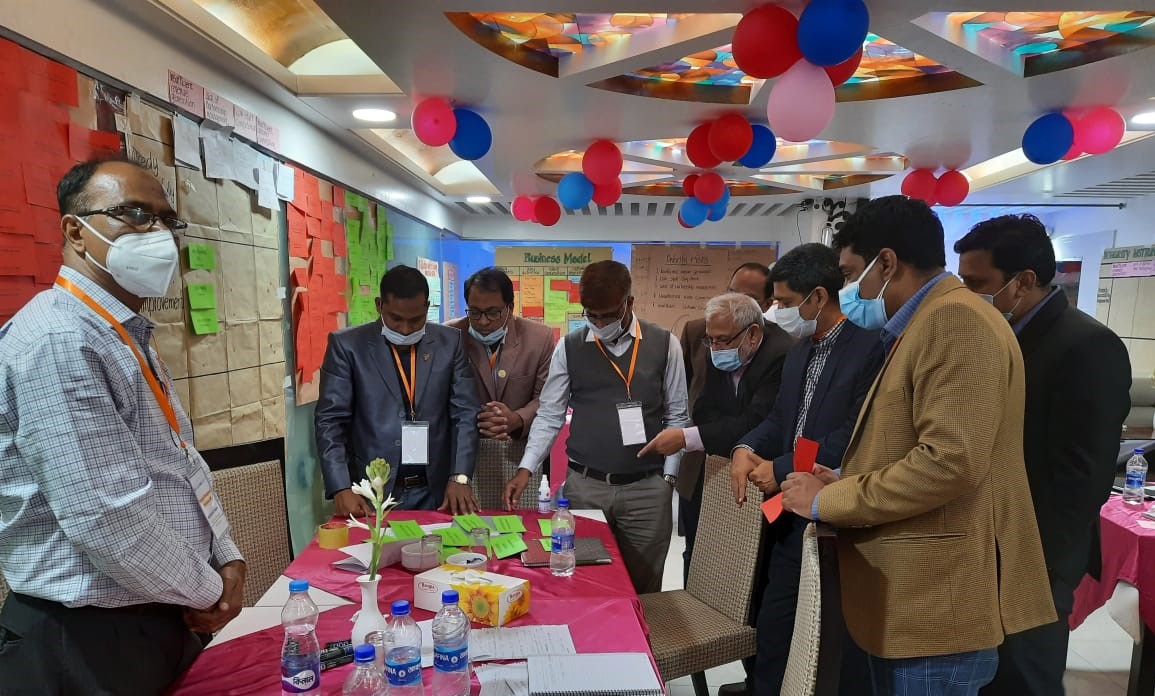
The 8th Five Year Plan of Bangladesh (2020–2025) stipulates that critical urban services such as water supply, drainage, sanitation, and waste management will require intensive investment as well as structural reforms to enable the development of strong local government institutions. For Bangladesh to become a solidly middle-income country and an engine of growth in South Asia, however, requires more than investment in infrastructure: the country needs to invest in processes that strengthen integrity, improve work performance, and increase public trust. This crucial commitment will ensure the effective use of resources. Poor integrity damages the reputation and creditworthiness of entities in the water sector. Conversely, mitigating integrity risks can lead to substantial savings across the sector and secure the proper use of investment funds.
Since 2014, under the umbrella of the Bangladesh Water Integrity Network (BAWIN), key partners the Water Integrity Network, the NGO Forum, and cewas have been implementing an Integrity Management Project with the Water Supply and Sewerage Authorities of three cities: Khulna (KWASA), Chittagong (CWASA), and Rajshahi (RWASA). The project supports water institutions in Bangladesh in addressing integrity risks by using the InWASH approach, which is built on integrity assessment and management, with the goal of both strengthening integrity and improving performance.
Project Objectives
The project’s ultimate objective is to bolster Bangladesh’s efforts to achieve the SDG targets. The project also aligns with the country’s National Integrity Strategy. The Integrity Management Project aims to:
- Improve levels of integrity and performance at WASAs
- Contribute to raising awareness around water integrity in Bangladesh
- Support the building of stronger institutions
- Enhance the capacity of BAWIN members to facilitate integrity management projects
- Document good practices for other water utilities
- Share introduction of the integrity management approach to WASAs.
Key Achievements
Under the project, the WASAs engage actively with customers via public hearings and inform them about the progress of IM Project implementation. The utilities also engage actively with the media. The three WASAs participate in knowledge-exchange workshops to share their learning and experiences, and they carry out wider advocacy with government officials and ministers in collaboration with BAWIN and the NGO Forum.
As the pioneer among the three utilities, KWASA joined the project in 2014 and have developed their integrity roadmap. In early 2020, KWASA addressed low staff competence on public procurement rules (PPR), poor performance of contractors, inaccurate meter reading procedures, and an inefficient billing system. By the end of 2021, the utility plans to train 100 percent of its officers on PPR and electronic government procurement processes; achieve a satisfactory level of performance from contractors on tender specification; ensure accurate meter reading for 100 percent of KWASA customers; and increase revenue collection from existing customers by 40 percent.
CWASA is one of the largest utilities in Bangladesh in terms of its size and population served. The organization began implementing an integrity roadmap in 2019, which has helped to strengthen accountability mechanisms in the field inspection process. CWASA’s efforts caught the notice of the national government, which gave the utility its National Integrity Award in 2019.
In 2020, RWASA created an integrity team, with the managing director leading the process. As of 2021, implementation of the integrity roadmap has gotten underway. Critical goals outlined in the roadmap include standardizing procurement processes as per compliance guidelines, initiating direct interaction with customers, and improving the utility’s cash handling policy.
" Water integrity management offers a very systematic approach. When we first started the integrity management process at KWASA it was quite challenging, as we were unaware of how the approach would be accepted within the organization. But when the government introduced its National Integrity Strategy, KWASA received benefits for our efforts, and moving forwards we were able to align our work well with the government policy and strategy. "
- Mohammed Abdullah (KWASA Managing Director)
" We are making progress in terms of integrity and ethics. In 2018, CWASA developed an integrity management roadmap through the application of the Integrity Management Toolbox for managing the integrity change process. This process has helped CWASA identify the integrity risks we faces and choose the best integrity tools to manage them. "
- A. K. M. Fazlullah (CWASA Managing Director)
We have perceived that the implication of Integrity Management Tool boosted up the overall progress of the KWASA and CWASA authority. We are uplifting our learning curve about that specific management tool and we would be eyeing to replicate the phenomenon and change the management practice in the other WASAs and municipalities. The aftermath of going through the process of IMT in management is multifarious and we have apprehended that this would be the next big thing in the process of management for better service delivery.
